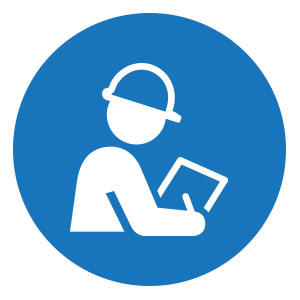
Next Video: Communication Tool 6: Managing and Monitoring Work
What’s the point of having a Contract or Written Agreement when I’m going to go and do my Building Project?
Hi, I’m Mitch from Next Gen Building and over the next couple of minutes we’re going to be discussing Contracts and Written Agreements. This is Video five in our series where we’re talking about tools that we can use to increase the effectiveness of our Communication and getting the ideal outcome in our Building Projects.
To get started, it’s very important that you understand that there are various processes in your Construction Project and their implications both Contractually and Legally.
Every Project, regardless of where you do it, will have some form of interest from either your Local Shire maybe State or Federal Government, some other Governing body. Someone will have a vested interest in what you are doing, It could be as simple as Worksafe (for example) but regardless of who it is you need to be aware of, as a Client, your responsibilities to make sure that you’re going to maintain compliance.
You also need to make sure that the Builder or Contractor that you inevitably end up choosing to work on your Project with you will maintain compliance too. Don’t be afraid to ask them right in the beginning how they are going to maintain compliance. Do they know what they have to do to maintain compliance? Can they assist you as a Client to maintain compliance? These are questions that you need to talk about upfront.
When you are talking about these things with your Builder or Contractor, if you don’t understand something, make sure you ask. It is very, very important that you get clear and concise advice from your Builder or Contractor and the same with anything, if you don’t know, ask. Nine out of ten times your Builder or Contractor will be more than happy to assist you and he should be happy to help out wherever he can.
So there are a couple of forms of written documentation - they could be a Written Agreement or a Formal Contract and there are various Contracts or Agreements that are needed depending on what sort of Project you’re building. For example you might need just an Overarching Contract to cover the Project as a whole or depending if you’re bringing in Sub-Contractors you might want to have individual parts that form a part of your Head of Contract. So if you’re not sure what you need, your Builder or Contractor should definitely know.
If you don’t get a satisfactory answer, or you’re not sure or you’re just feeling a little bit uncomfortable make sure that you ask someone that you trust or seek Legal Advice – this is so critical because this can bring you undone as well.
One part of a Contract or Written Agreement that comes up quite a lot is the topics surrounding variations and we’ll go into a separate video on variations, because this is something that I could talk about all day.
Things with variations is, ask yourself, do they need to be signed? Do they need to be in writing? What are the payment terms on variations? Are they paid before the works are done? Are they paid at the next milestone? What’s an acceptable margin for your Builder or Contractor to put on a variation? There’s quite a lot of information there, but this is just an overview of questions that you should be asking yourself.
If you ask a question in the comments below, we can talk about it more.
Contracts required for most Projects will vary but as a general rule the body will be much the same, it’ll just be the key components that will change. Once again make sure that when outlining all of your expectations that this conversation is had right at the beginning and it is had before work starts because I can’t stress enough how important it is. Both from a Legal point of view and a Compliance point of view, this needs to be done right in the beginning before a screw’s turned or a hammer’s nailed.
It is so critical if there is anything you aren’t sure of, don’t sign – just get that advice, speak to someone you trust, seek legal advice but don’t rule out talking to your builder either because he should be more than happy to help you and he does this stuff all the time so he might be able to assist you with the queries you have. However, if you don’t feel comfortable with the answer you got from him … DON’T SIGN ANYTHING … Get the advice you need.
Just to recap on this, before you build your product, before work starts, make sure that you’re comfortable with the information that you’ve been provided and that you understand your obligations and your Contractor’s obligations.
So that’s about it, like I said, we’ll break this down into some further videos later on but if you’ve got any questions bang ‘em in the comments below, happy to talk about it, and we’ll catch up in the next video.
Thanks very much.
Next Video: Communication Tool 6: Managing and Monitoring Work
« Return to 7 Essential Project Communication Tools: Video Series